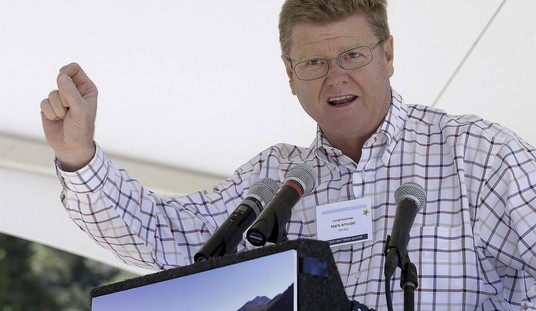[mc_name name=’Sen. Elizabeth Warren (D-MA)’ chamber=’senate’ mcid=’W000817′ ] says she is not running for President. Sadly, that does not make her a benign or waning influence in national politics.
As MSNBC host Rachel Maddow has (with probable glee) noted, Hillary Clinton – probably in an effort to do or say something that is interesting or motivating to anyone, anywhere – has been parroting Warren. CNN Money ran a story with a similar thrust recently, saying of Hillary’s announcement video, “Long considered a centrist, Clinton sounded strikingly similar to Warren, the outspoken darling of the left wing.”
For as long as Warren remains the favorite of the progressive movement, and a major driver of Clinton’s positioning as a candidate, it’s important to keep tabs on what she’s up to, because it tells us what liberals and the Democratic Party overall will try next.
While Warren is mostly known for crusading for more big government in the form of things like the Consumer Financial Protection Bureau, created by the Dodd-Frank legislation that preserved too-big-to-fail, recently she has been showing her big government instincts with regard to K-12 education matters, too. This may seem like a boring topic, but with many readers being parents, it warrants our attention.
Currently, Congress is undertaking a process called ESEA reauthorization. Basically, this can be a vehicle for continuing bad, big-government, intrusive, top-down federal meddling in education (or even worsening it). Or it can be an opportunity for at least moderate education reform.
The Senate is looking at a bill that would do a couple of things, namely in general adjust the balance between states and the federal Department of Education when it comes to driving the education policy train in a direction that would be more federalist than it currently is, and ban Common Core. Warren does not like it, and like any good big government liberal, she wants to keep Washington in the drivers’ seat, especially where it concerns the matter of teacher evaluations – a fight teachers unions would rather have at the federal level, where they can fight on one front with a liberal Democrat president in charge (good for them), rather than fighting on many fronts to avoid any measures to hold bad teachers accountable which would be tricky, especially with a bunch of union-skeptical conservative governors running the states since the 2014 election.
This is where we get to some good news. The Senate committee tasked with ESEA reauthorization marked up a bill on that front, and an amendment Warren wanted that would have dug Washington’s claws deeper into education policy failed:
“The first amendment to go down to defeat came from Democratic [mc_name name=’Sen. Elizabeth Warren (D-MA)’ chamber=’senate’ mcid=’W000817′ ] of Massachusetts who sought to require that states and local school districts explain the criteria they use to evaluate teachers, but Alexander opposed the effort, saying he wanted to move Washington away from saying how teachers should be evaluated. Warren said the amendment was about improving transparency, but Alexander’s sentiment prevailed as the amendment was defeated along party lines.”
This is a good thing. While it does not show that Warren’s influence on the Democratic Party or liberal America is waning, it does show that at least her Senate colleagues are not kowtowing to her, despite the fact that the media loves to talk about how Warren is seen as the best thing since sliced bread, even by people who vote Republican. This is usually the kind of storyline that freaks out the Senate GOP and causes them to start caving to stupid, liberal demands that make for bad policy and bad politics. The rejection of Warren’s amendment provides a glimmer of hope here.
<a href=”https://twitter.com/twitter” class=”twitter-follow-button” data-show-count=”true”>Follow @twitter</a>














Join the conversation as a VIP Member